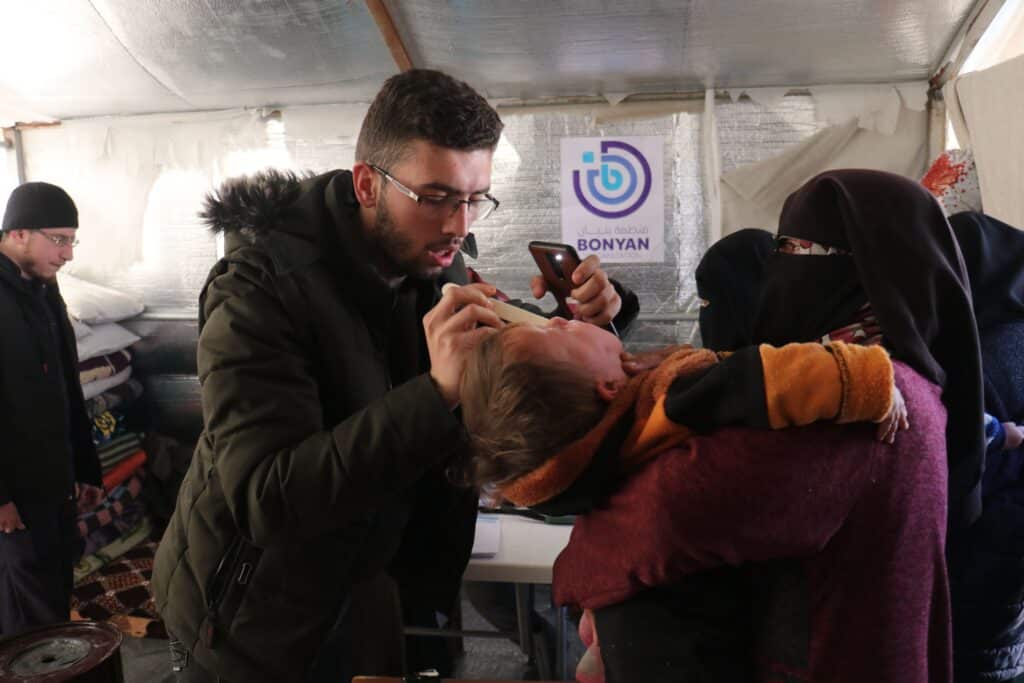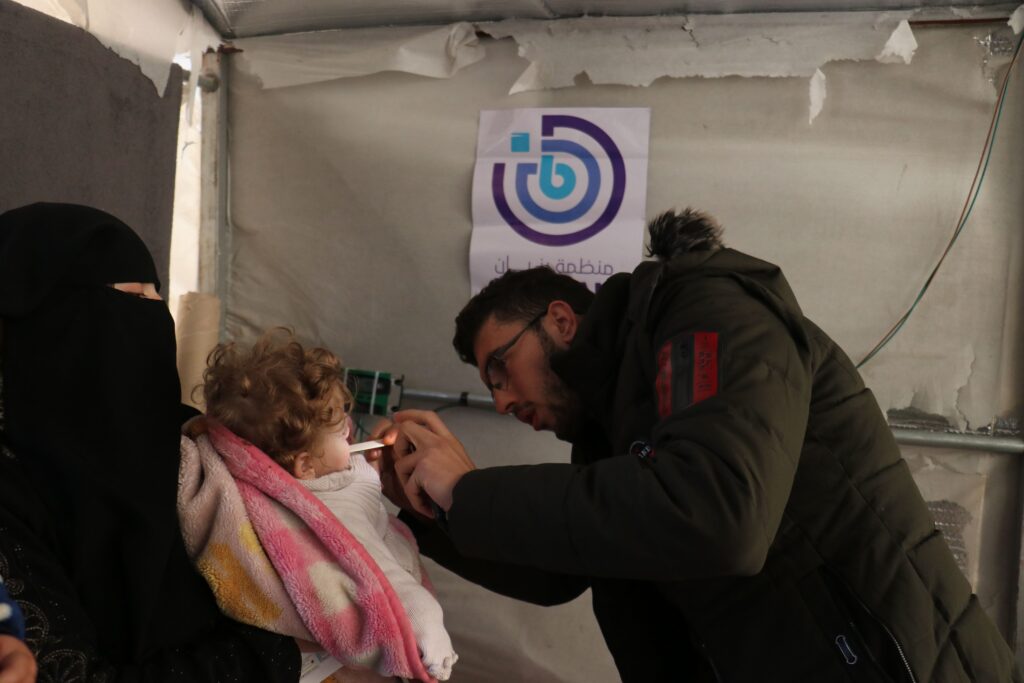Hospitals for refugee and displaced persons suffer from a lack of funds and essential medical equipment, leaving thousands of people without access to life-saving treatments.
Therefore, donating to support these hospitals can help provide primary healthcare to those in need and give individuals and families a chance to survive and thrive under challenging circumstances.
Improving access to healthcare
There are several ways we can improve access to healthcare for vulnerable populations, including refugees and displaced persons:
- Funding mobile medical clinics
Which brings healthcare services to remote or hard-to-reach areas where traditional medical facilities are unavailable.
- Building and equipping new medical facilities
In some cases, the lack of healthcare services in refugee areas and displacement camps is due to a lack of medical facilities.
- Supporting healthcare professionals
Those who work in refugee areas and displacement camps face significant challenges in providing medical care to their patients.
- Providing Medical supplies and equipment
Which are often in short supply in refugee areas and displacement camps.

Enhancing the quality of medical services
Enhancing the quality of medical services in refugee areas and displacement camps ensures that vulnerable populations receive the care they need to overcome illness and injury.
Here are some ways we can improve the quality of medical services:
- Providing specialized medical services to many refugees and displaced persons who have special medical needs.
- Supporting medical research that can help identify new and improved treatments for various illnesses and conditions.
- Investing in medical technology to help healthcare professionals provide better patient care.
- Providing ongoing training and education to stay up-to-date on the latest medical practices and technologies.
By enhancing the quality of medical services in refugee areas and displacement camps, we can help ensure vulnerable populations receive the best possible medical care.
Providing critical medical equipment and supplies
Providing critical medical equipment and supplies is essential to ensure healthcare professionals in refugee areas and displacement camps have the necessary tools and resources to deliver quality patient care.
Here are some ways we can provide critical medical equipment and supplies:
- Donating medical equipment such as surgical instruments.
- Distributing medical supplies such as bandages and medications.
- Supporting medical supply chains to reach refugee areas.
- Providing emergency medical kits.
Investing in the health and well-being of the community
Improving the health of the community is essential to enhancing healthcare services for refugees.
There are several projects in which you can invest, such as
- Launching community health programs that educate individuals and families on healthy habits and practices.
- Supporting nutrition programs that provide healthy food and supplements to vulnerable populations can also significantly impact refugees’ overall health.
- Funding water and sanitation projects can help reduce the spread of disease by improving access to clean water.
- Investing in mental health support programs can help individuals and families manage the stress and trauma of displacement.
Empowering Healthcare Professionals
Empowering healthcare professionals in refugee areas and displacement camps is essential to improving healthcare services for vulnerable populations.
Training and education, access to medical technology, adequate resources, and opportunities for professional development can help healthcare professionals provide better patient care.
By empowering healthcare professionals, we can ultimately promote better health and well-being.

Helping those in need and alleviating their suffering
Helping those in need and alleviating suffering is at the heart of everything we do at Bonyan, Organization.
Everyone deserves access to essential health care, education, and support services, regardless of their circumstances.
Through our programs, we work to alleviate the suffering and improve the lives of vulnerable people in refugee areas and camps for displaced persons.
We know the challenges are complex and multifaceted.
That’s why we offer various support services, including emergency relief, education, women’s health, and disability support to benefit the refugees who are in dire need.
Providing these services, we help individuals and families build a more hopeful future and meet their challenges.
At Bonyan, we are committed to making a positive difference in the lives of those most in need.
We believe that by working together, we can create a fairer and more just world where everyone has the opportunity to live a good life.
Our mission is only possible thanks to the support of people like you.
Do you want to share any experiences, ideas, or suggestions with us?
We would love to hear your thoughts and comments on improving access to healthcare in the ravaged refugee areas and displacement camps.
Resources
- Investment for health and well-being
- How to Improve Access to Health Care
- Improving the quality of health services
FAQs
Why do people donate money to hospitals?
People donate money to hospitals for a variety of reasons:
–Gratitude.
–Support for the community.
–Research and development.
–Legacy giving.
How do donations to hospitals help improve access to medical care?
Donations to hospitals can help improve access to medical care in several ways, such as the purchase of medical equipment and supplies.
What kind of medical research and innovation can be supported through hospital donations?
So many kinds of medical research and innovation can be supported through hospital donations, like:
–Clinical Research.
–Medical Technology.
–Disease Prevention.
–Health disparities.
How does donating to hospitals help alleviate suffering and help those in need?
Donating to hospitals helps alleviate the suffering of those in need by providing them with access to medical care, emergency aid, support for medical research, and patient financial assistance.



